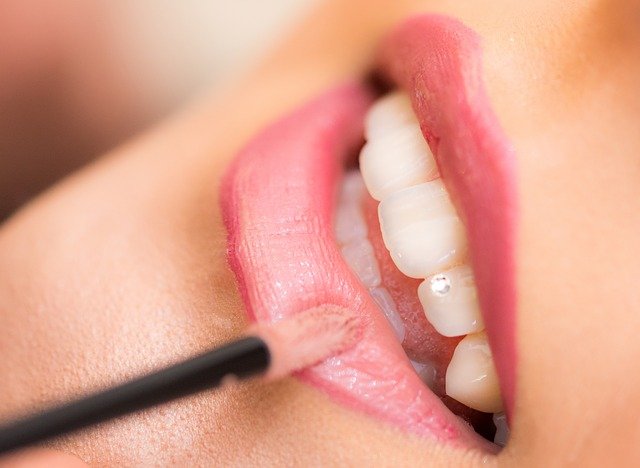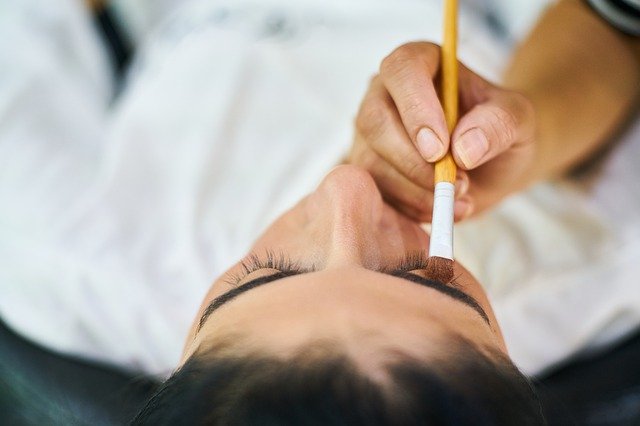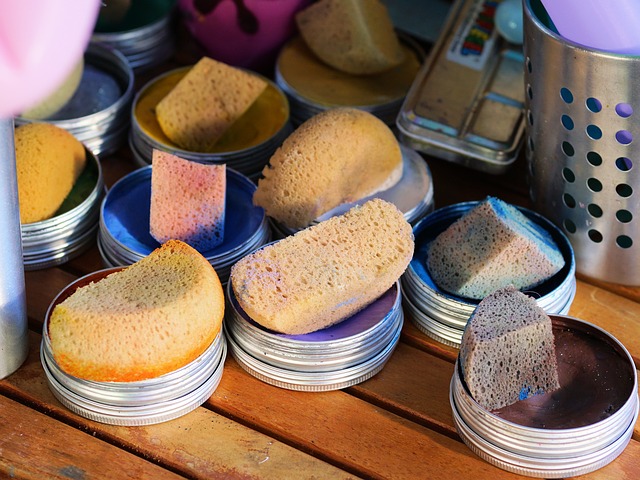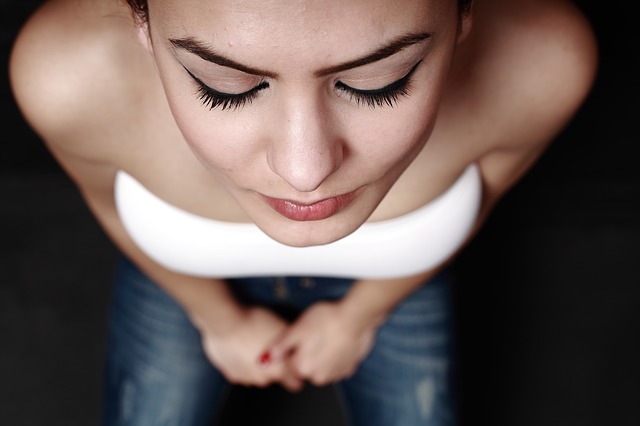You're probably no stranger to the frustration of breakouts after wearing makeup. To minimize the risk, forming a consistent skincare routine is crucial. You'll want to start by cleansing your face before applying makeup, creating a smooth canvas for your products. But that's just the beginning – there are several other key steps to take to prevent breakouts. By incorporating a few simple habits into your daily routine, you can remarkably reduce the likelihood of post-makeup breakouts. But what are these habits, and how can you use them to achieve healthier, clearer skin?
Cleanse Face Before Makeup
Before applying makeup, you need to prep your skin by washing away dirt, oil, and impurities with a gentle cleanser to create a smooth canvas. You should use a cleanser that suits your skin type, whether it's normal, dry, oily, or combination. Massage the cleanser onto your face for about 30 seconds, then rinse with lukewarm water to remove all residue.
This step is vital in preventing breakouts after makeup. When you apply makeup on dirty skin, you're basically trapping dirt and bacteria underneath, which can lead to clogged pores and acne. By cleansing your face, you're giving your skin a fresh start, allowing your makeup to glide on smoothly and stay in place longer. In addition, a clean face helps your makeup look more even and natural, which is what you're aiming for. So, take a minute to wash your face before applying makeup, and you'll be on your way to a flawless, breakout-free look.
Exfoliate Skin Regularly
Now that you're washing your face before applying makeup, take it to the next level by exfoliating your skin regularly to remove dead skin cells and unclog pores, helping your makeup stay in place and reducing the likelihood of breakouts. Exfoliation helps to prevent clogged pores by removing dead skin cells and excess oils, making it more difficult for bacteria to thrive and cause breakouts. You should exfoliate your skin one to three times a week, depending on your skin type and concerns. Use a gentle exfoliating scrub or a chemical exfoliant containing alpha-hydroxy acids (AHAs) or beta-hydroxy acids (BHAs) to remove dead skin cells.
Be gentle when exfoliating sensitive areas, and avoid over-exfoliating, as this can lead to irritation and dryness. It's also essential to follow up with a moisturizer after exfoliating to keep your skin hydrated and balanced. Regular exfoliation will not only help to prevent breakouts but also improve the overall texture and appearance of your skin. By making exfoliation a part of your skincare routine, you'll be on your way to achieving healthier, more radiant-looking skin that will make your makeup look even more flawless.
Use Makeup Remover Properly
Your makeup removal routine is just as essential as your makeup application process, and using a makeup remover properly is key to preventing breakouts and maintaining healthy skin. When you don't remove your makeup thoroughly, it can clog pores and cause irritation, leading to acne and other skin issues. To avoid this, make sure to choose a gentle makeup remover that suits your skin type.
You should use a makeup remover every night before bed, even if you're exhausted. It's imperative to remove all makeup, especially eye makeup and lipstick, as these can be notoriously stubborn. Soak a cotton pad with remover and gently wipe away your makeup, starting from the center of your face and working your way out. Don't scrub or rub too hard, as this can irritate your skin and cause micro-tearing. Instead, let the remover do its job and dissolve the makeup. Rinse your face with lukewarm water to remove any remaining residue, and pat dry with a clean towel. By following this simple routine, you'll be able to keep your skin clear and prevent breakouts.
Choose Non-Comedogenic Products
Selecting non-comedogenic products is essential in preventing breakouts after makeup, as these products are specifically designed not to clog pores. When you use non-comedogenic products, you're reducing the risk of acne and other skin irritations. Look for products labeled "non-comedogenic" or "oil-free" as they are less likely to cause breakouts.
You should also check the ingredient list for any potential pore-cloggers like mineral oil, petroleum jelly, or isopropyl myristate. If you have sensitive skin, opt for fragrance-free products to minimize the risk of irritation. Additionally, choose products that are suitable for your skin type. If you have oily skin, look for products that are lightweight and won't exacerbate oiliness. For dry skin, choose products that are moisturizing but won't clog pores.
Avoid Heavy Makeup Application
Applying heavy layers of makeup can lead to clogged pores and increase the risk of breakouts, so a vital step is to adopt a lighter hand when putting on makeup. When you cake on foundation, concealer, and powder, you're basically suffocating your skin. This can cause irritation, especially if you have sensitive skin, and can even lead to acne.
Instead, aim for a natural look that enhances your features without overwhelming them. Start by using a light-coverage foundation that matches your skin tone. You can always add more coverage where needed, but it's harder to take it away once it's applied. Be gentle when applying concealer and powder, and remember that a little goes a long way. Focus on blending well, rather than applying more product. For a fresh finish, opt for cream-based blush and highlighter to bring a subtle glow to your complexion. Enhance your eyes with a swipe of mascara and groomed brows, keeping everything soft and understated. These natural nomakeup makeup tips will help you achieve a polished yet effortless appearance that highlights your best features.
Keep Makeup Brushes Clean
Even with a light hand, dirty makeup brushes can still cause breakouts by harboring bacteria and transferring it to your skin, so make sure you're washing them regularly. You should clean your brushes at least once a week, or more often if you use them daily. Use a mild soap and lukewarm water to gently remove dirt and makeup residue. Swirl the brushes around, working the soap into the bristles, then rinse thoroughly.
Shape the brushes back to their original form and lay them flat to air-dry. You can also use a brush cleaner or a mixture of equal parts water and white vinegar to sanitize the brushes. Don't share your makeup brushes or use someone else's, as this can spread bacteria and other germs. By keeping your makeup brushes clean, you're reducing the risk of breakouts and ensuring a smoother, more even makeup application. Regular cleaning also extends the life of your brushes and keeps them in good condition.
Remove Makeup Before Bed
Every night, before you go to bed, take the time to thoroughly remove your makeup to prevent clogged pores and reduce the risk of breakouts. You've been wearing makeup all day, and if you don't remove it properly, it can mix with dirt, sweat, and oils on your skin, causing pores to clog and leading to breakouts. Use a gentle makeup remover that suits your skin type, and make sure to remove all makeup, including eye makeup and lipstick.
Don't rely on a quick wipe with a wet cloth; instead, use a dedicated makeup remover and lukewarm water to dissolve and remove all makeup residue. Be gentle, as rough scrubbing can irritate your skin and cause more harm. Remove your makeup as soon as possible after a long day or night out, and follow up with your regular skincare routine to keep your skin clean and balanced. By removing your makeup before bed, you'll be giving your skin the best chance to breathe, repair, and rejuvenate itself while you sleep.
Stay Hydrated From Within
Drinking plenty of water throughout the day is essential to flushing out toxins and keeping your skin hydrated from the inside out, which in turn helps prevent breakouts and maintain a healthy complexion. You've probably heard this advice a million times, but it's vital to take it seriously, especially if you wear makeup regularly. When you're dehydrated, your skin becomes more prone to irritation and inflammation, making it the perfect breeding ground for breakouts.
Staying hydrated from within also helps your skin to function properly, regulating its natural oil production and pH levels. This means that your skin will be less likely to overproduce oil, which can clog pores and lead to breakouts. Aim to drink at least eight glasses of water a day, and consider increasing your intake if you're physically active or live in a dry climate. By making hydration a priority, you'll be giving your skin the best possible chance to stay healthy and breakout-free, even when you're wearing makeup.
Balance Skin Ph Levels
How do you strike the perfect balance between acidity and alkalinity to maintain the delicate pH levels of your skin, which plays a key role in preventing breakouts, especially when you're wearing makeup? Achieving this balance is pivotal, as an imbalance can lead to irritation, redness, and acne. Your skin's natural pH is slightly acidic, ranging from 4.5 to 5.5, and maintaining this range is imperative.
When your skin's pH is out of whack, it can't function properly, and its natural barrier is compromised. To balance your skin's pH, use products that match its natural pH, and avoid products that are too harsh or alkaline. Be mindful of exfoliating products, as they can disrupt your skin's pH balance. Look for products that are labeled as 'pH balanced' or 'non-comedogenic' to guarantee they won't clog pores or irritate your skin. By maintaining your skin's natural pH, you can create a healthy environment that prevents breakouts and allows your makeup to look its best. Remember, balanced skin is the foundation of healthy, acne-free skin. By striking the right pH balance, you'll be one step closer to a flawless complexion.
Use Spot Treatments Wisely
When tackling a breakout, zero in on the affected area with a spot treatment that targets the specific issue, rather than slathering on a product that can dry out or irritate surrounding healthy skin. You can use a spot treatment containing salicylic acid or benzoyl peroxide to help reduce acne and prevent future breakouts. For areas with redness and inflammation, look for products with soothing ingredients like green tea or chamomile.
Using a small amount of the treatment product and gently dabbing it onto the area with your ring finger will help prevent further irritation. Don't overdo it; applying too much product can lead to dryness, flakiness, and prolonged healing time. Instead, allow the product to absorb fully before applying your makeup. Also, use your spot treatments at night, allowing them time to work effectively as you sleep. Finally, be consistent with your application to achieve noticeable results.
At a Glance
You've now got the lowdown on how to prevent breakouts after makeup. By following these 10 essential tips, you'll be on your way to a clearer, healthier complexion. Remember to cleanse your face before makeup, exfoliate regularly, and choose non-comedogenic products. Stay hydrated, balance your skin pH levels, and use spot treatments wisely. With a consistent skincare routine and smart makeup choices, you can say goodbye to post-makeup breakouts and hello to radiant, glowing skin.






